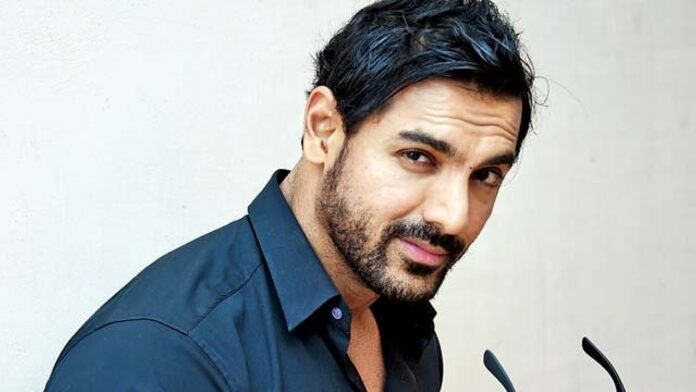John Abraham’s recent comments about safety in India have sparked a renewed debate. In a recent interview on Ranveer Allahbadia’s podcast, Abraham expressed serious concerns about the safety of women, children, and animals in India. He described these groups as some of the most oppressed members of society. His remarks come amid heightened outrage following the Kolkata doctor rape-murder case.
Abraham’s comments have resurfaced in light of the ongoing discussions about the safety and protection of vulnerable groups in India. The actor stressed the importance of addressing these issues, stating that as someone who loves his country, he feels it is his duty to critique its shortcomings. He believes that true patriotism involves pointing out and working to rectify the failings of one’s nation.
In his interview, Abraham asserted, “Women, children, and animals are not safe in India. It is sad. Indian men need to understand how to treat their women. Yeh bohot important hai. Har aurat ke liye, ek aadmi ko ek rakshak hona chahiye.” He emphasized that it is crucial for every man to act as a protector to women. According to him, this protective role is a fundamental responsibility that all Indian men should embrace.
The actor’s comments have elicited a range of reactions from the public and media. Some have praised Abraham for highlighting serious issues and calling for societal change, while others have criticized him for focusing on negative aspects of Indian society. The controversy surrounding his statements reflects broader concerns about safety and gender relations in the country.
Abraham’s remarks align with his previous statements about social issues. The actor has been vocal about his views on various topics, often using his platform to address important social and cultural matters. His latest comments underscore his commitment to raising awareness about issues that he believes need urgent attention.
The debate around Abraham’s statements highlights the ongoing struggles related to women’s safety and the treatment of vulnerable groups in India. While his comments have sparked controversy, they have also opened up important discussions about how to address these issues effectively. Many argue that public figures like Abraham have a role in drawing attention to such problems and advocating for change.
The public’s response to Abraham’s comments has been mixed. Some people view his critique as a necessary step towards improvement, while others see it as an oversimplification of complex societal problems. The discussion reflects broader conversations about accountability, responsibility, and the role of public figures in addressing social issues.
In addition to the immediate reactions, Abraham’s statements have prompted discussions about the role of celebrities in societal change. As influential figures, celebrities often shape public discourse and can draw attention to critical issues. However, their comments can also be polarizing, depending on how they are perceived and the context in which they are made.
Overall, John Abraham’s comments have reignited debates about safety, protection, and societal responsibilities in India. As the country grapples with these issues, his statements serve as a reminder of the ongoing need for dialogue and action. The actor’s call for men to take on a protective role and his critique of societal shortcomings highlight the complexity of addressing social issues and the importance of continued efforts to improve safety and well-being for all.
John Abraham’s comments have ignited a broader conversation about the role of public figures in advocating for social change. By using his platform to highlight issues of safety and protection, Abraham has drawn attention to the persistent challenges faced by women, children, and animals in India. This has prompted both support and criticism from various quarters.
Many supporters argue that Abraham’s statements are a necessary wake-up call for society. They believe that addressing uncomfortable truths is crucial for initiating meaningful change. Advocates of his viewpoint stress that public figures can play a significant role in bringing pressing issues to light, encouraging action, and fostering a more informed and proactive society.
On the other hand, critics have questioned the effectiveness of focusing on negative aspects of society. Some argue that highlighting problems without providing actionable solutions may contribute to a sense of hopelessness rather than motivating constructive change. They suggest that a more balanced approach, which includes positive examples and practical steps, might be more effective in driving progress.
Abraham’s remarks also shed light on the complex dynamics of societal reform. Addressing issues related to safety and protection requires a multifaceted approach involving education, legal reforms, and community engagement. The actor’s comments have contributed to discussions about how to create safer environments and promote better treatment for all members of society.
The controversy surrounding Abraham’s statements reflects a broader trend in which public figures are increasingly held accountable for their views and actions. As societal expectations evolve, there is growing scrutiny of how celebrities address social issues and the impact of their statements. This evolving dynamic highlights the importance of thoughtful and constructive engagement in public discourse.
Moreover, Abraham’s focus on the role of men in protecting women has sparked discussions about gender roles and expectations. Critics and supporters alike are debating how best to foster respect and safety in relationships and communities. This conversation underscores the need for ongoing dialogue about gender equality and the responsibilities of individuals and society as a whole.
As the debate continues, Abraham’s comments serve as a reminder of the power and responsibility of public figures in shaping societal attitudes and driving change. While his statements have elicited mixed reactions, they have undeniably contributed to important discussions about safety, protection, and social responsibility in India. The actor’s willingness to address these issues openly reflects a broader trend of using celebrity influence to advocate for positive change.

